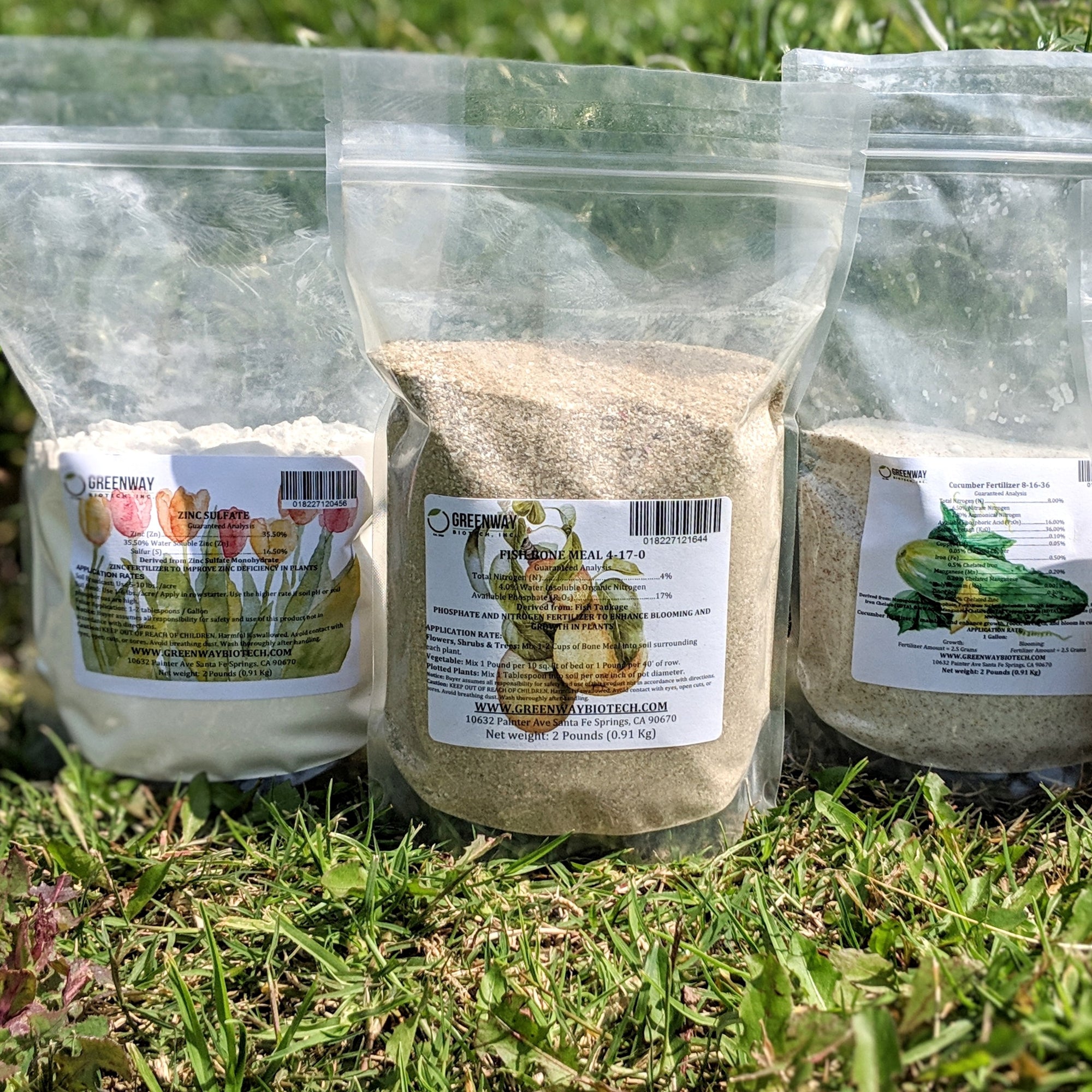How Do Synthetic and Organic Fertilizers Compare?
•Posted on May 30 2019

Knowing the type of fertilizer to apply to your garden can be a little tricky.
With the number of choices available, how are you to decide which is most suitable for your garden?
An easy place to start is by considering the two main categories of fertilizer: organic and synthetic.
While most might think organic is always the way to go, there are some instances where synthetic might be a better choice for your plants.
Read on to learn the differences between synthetic and organic fertilizer, how they benefit your plants and how to determine which is best for your garden.
What is Synthetic Fertilizer?

First, let’s discuss synthetic fertilizer. Fertilizers described as "synthetic" are inorganic compounds.
These compounds are man-made and tend to be manufactured from by-products of the petroleum industry.
The most popular examples of these synthetic fertilizers that you may have previously used in your garden include Urea, Monopotassium Phosphate, and Monoammonium Phosphate.
Collectively, these fertilizers are known as NPK fertilizers and they provide macronutrients that your plants need to grow.
What is Organic Fertilizer?
Organic fertilizers, on the other hand, are made entirely of natural products such as animal waste, powdered minerals, or plant matter.
Manure, guano, and phosphate rock are some of the most common types of organic fertilizer available on the market today.
People often worry that organic fertilizers might not produce the same results as synthetic fertilizers, but this is simply not true.
Introducing good-quality organic fertilizers to your garden can produce the results you desire, should you use them correctly.
How Do Both Types of Fertilizers Benefit Plants? Is One More Beneficial?

In the short term, synthetic water-soluble fertilizers can benefit plants by providing consistent amounts of nutrients through the soil. This is key if your plants need an immediate pick-me-up.
However, long-term usage, if not administered properly, can strip your soil of beneficial micro-organisms, which can damage the long-term health of your soil and cause your plants to be nutrient deficient.
As such, synthetic fertilizers should be used carefully. It could be a good idea to use them on a small selection of plants before using them on your entire garden.
Meanwhile, organic fertilizers improve soil health as well as plant health.
So, while synthetic fertilizers help in the short term, organic fertilizers are best for long term use.
Long term use of organic fertilizers can dramatically increase the composition and texture of your soil, making it a better environment for your plants to grow in.
This will then reduce how often you need to apply fertilizer in the future.
The only downside is the nutrients provided by organic fertilizer are not readily available for plants.
Unlike synthetic fertilizers, organic fertilizers need time to break down in the soil before your plants can intake what they need so it's important to consider whether or not your plants can wait long enough (about 2 to 6 weeks).
What Kind of Organic and Synthetic Fertilizers Are Available?

Fertilizers come in different forms, mainly liquid or solid, although nitrogen gas fertilizers are available. Many people prefer liquid fertilizers due to them being easier to apply and for the fact that the nutrients will be applied uniformly.
With poor-quality solid fertilizers, it's possible that the micro-nutrients may segregate during storage and handling, which would result in an uneven spread of nutrients. It pays off to spend the money on quality products.
How Can Someone Determine Whether Synthetic or Organic Fertilizer is Better For Their Garden?
If your plants are in need of a quick nutrient boost, a synthetic fertilizer would be best, as the results of their application can usually be noticed within days.
In cases of severe nutrient deficiencies, for example, you’ll want to choose synthetic.
But if you're planning for the long-term, and your plants are already in great condition, you may be fine with the delayed effect of an organic fertilizer.
Ultimately, to get an idea of what type of fertilizer is best for your garden, simply observe the health of your plants and the overall health of your soil.
Here at Greenway Biotech, we stock a range of high-quality synthetic and organic fertilizers - most of which can be applied both as a dry powder and a liquid fertilizer by dissolving in water.
Have a look around our online store, you're sure to find something to revitalize your plants.
Related Posts:
Comments
0 Comments
Leave a Comment